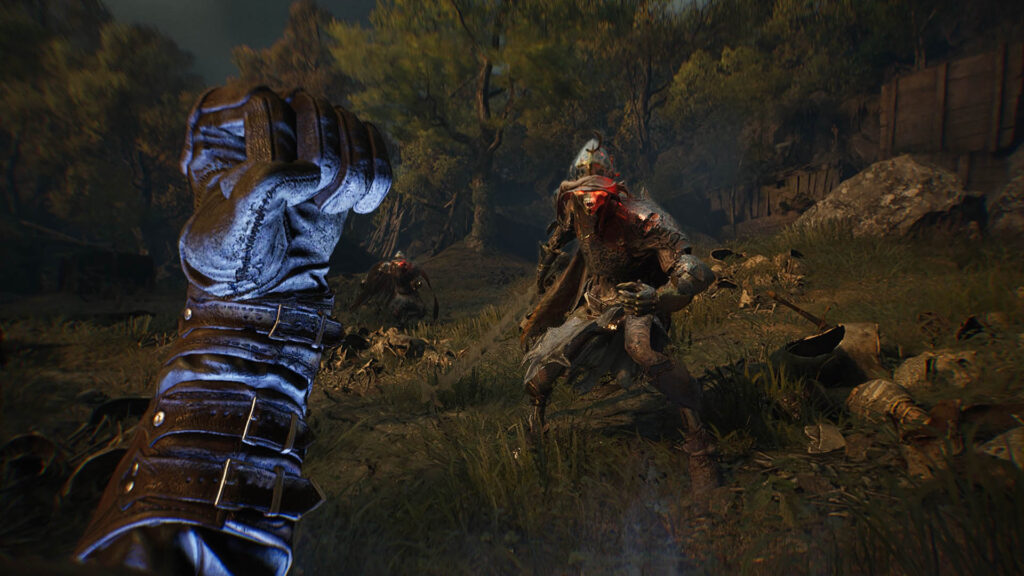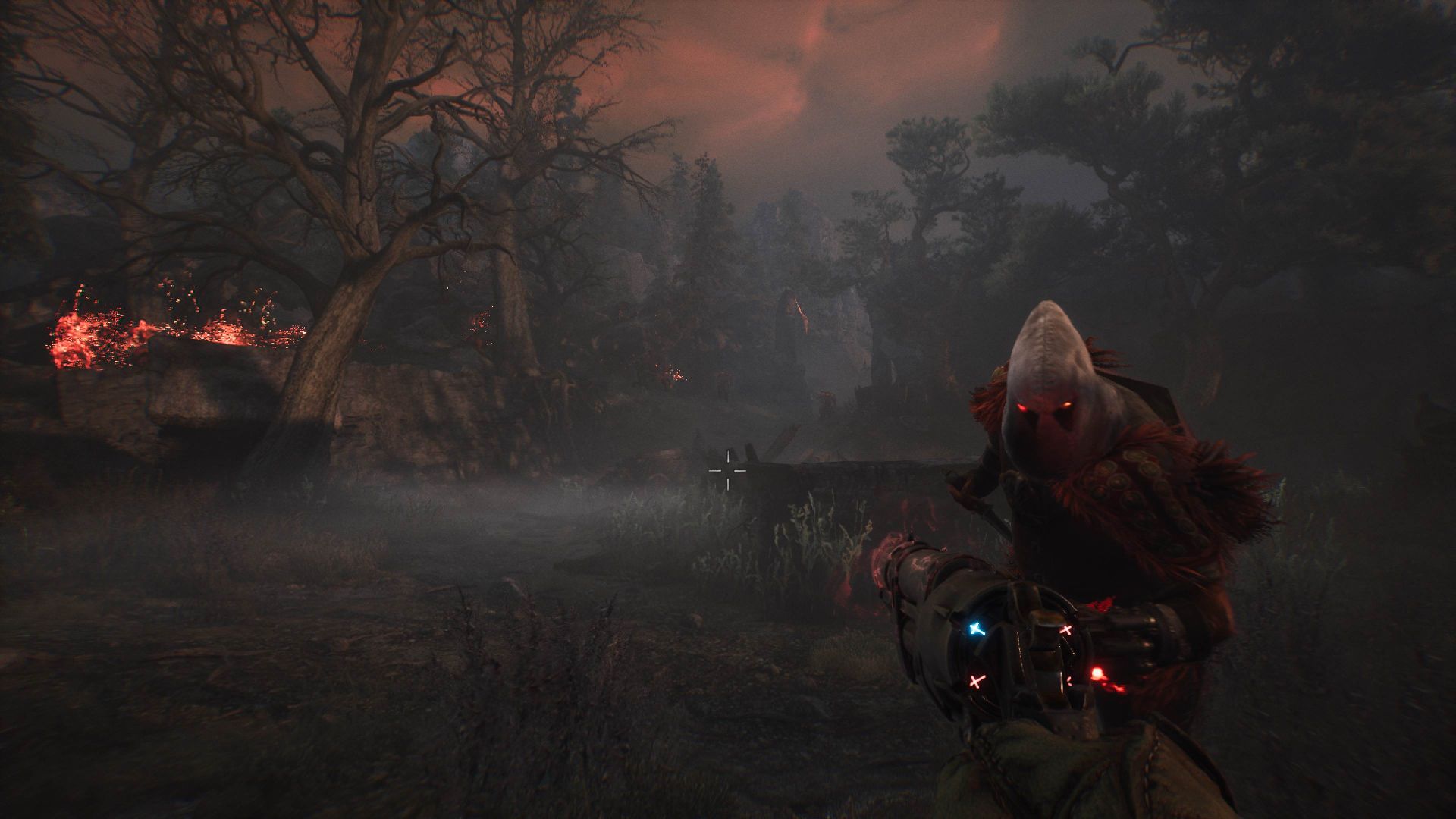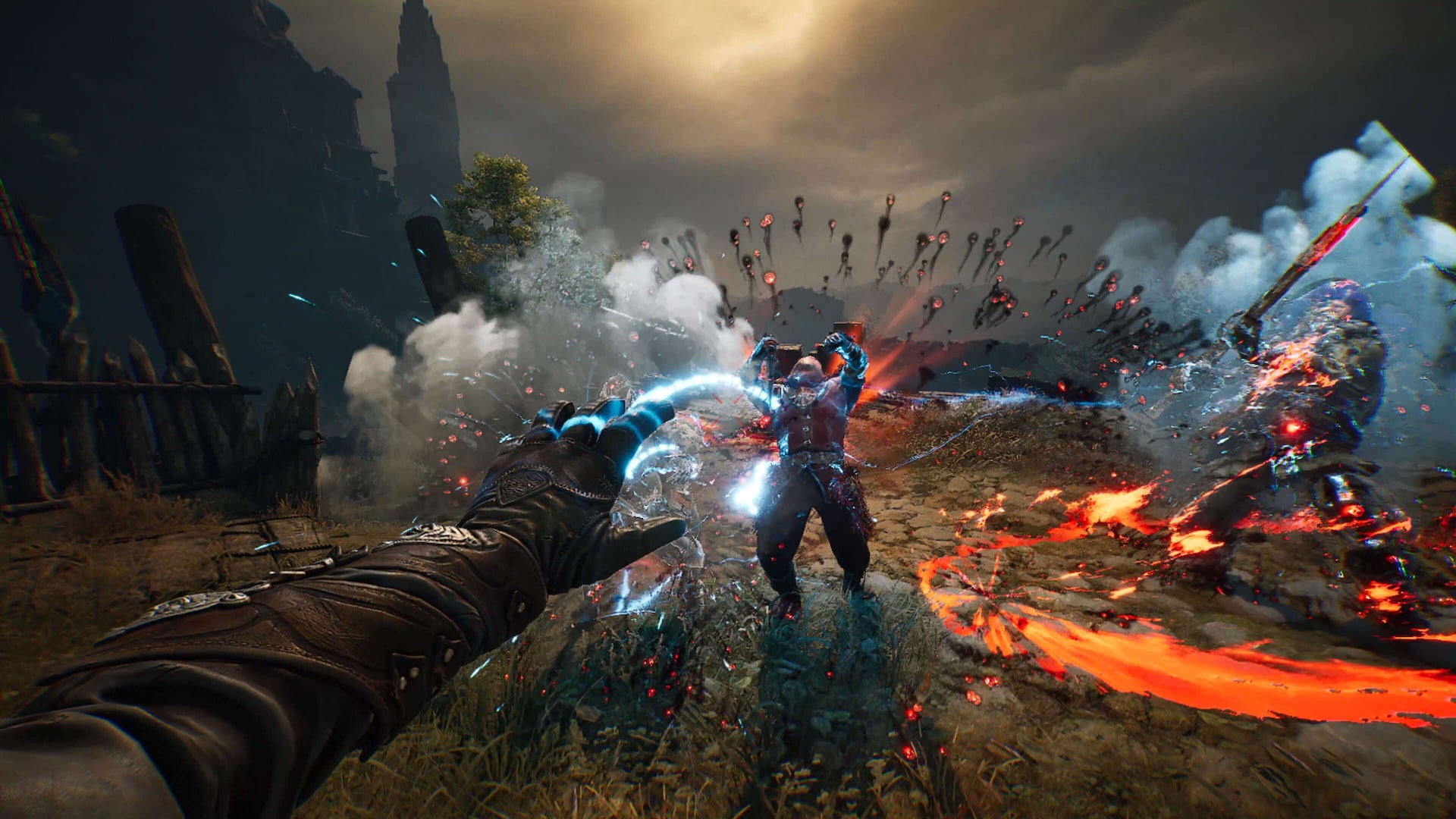
Witchfire was in the works for a while, and like most games do, it went through a few iterations before it could find its feet, but upon its early access launch in September, the dark fantasy roguelite FPS was instantly met with widespread praise. In the aftermath of its release, we reached out to its developers at The Astronauts to learn more about its development and what the studio has planned for the game’s early access period, among other things. Below, you can read our interview with Adrian Chmielarz, Creative Director and Co-Founder of The Astronauts.
“We do have things to fix, to update, to make better. But now we know that the core of Witchfire is solid and a great foundation for the future.”
Congratulations on Witchfire’s early access launch. How has the initial response from players been, and how is the development team feeling about what lies ahead for the project?
We don’t have any experience with Early Access, so we didn’t really know what to expect. For example, we weren’t sure if the 8-20 hours of play we thought the initial release offered was enough. Also, we did test the game and the testers liked it, but would actual gamers like it as well? What if it’s good, but not good enough to be fire?
Luckily, players do like the game, they often spend fifty, sixty hours with it. Some people have over three hundred hours of playtime, and we’re talking the initial Early Access release here. Our Discord blew up and we already have four thousand people over there, this early in the timeline.
This is all, of course, incredibly motivating. We do have things to fix, to update, to make better. But now we know that the core of Witchfire is solid and a great foundation for the future.
Witchfire’s development cycle has been long and eventful, with the game having gone from being a post-apocalyptic sci-fi survival experience to a dark fantasy shooter. At this point, with the game having hit the early access milestone, how much of that original vision has been retained in what players are experiencing now?
Yes, it started as one thing and morphed into another, but for the last six years it’s the same game, a dark fantasy first person shooter. We only had one revolution during that period. Originally, Witchfire was a series of interconnected arenas. Think Killing Floor and such. But we looked at the world and thought: what if it wasn’t just a background? What if we opened our playspace, made the game semi-open world?
And so we did. This delayed the game but it was absolutely the right decision.
What are some of the biggest ways Witchfire utilizes its dark fantasy setting not just in a narrative sense, but also in terms of the gameplay experience and the mechanics it has on offer?
What “dark” in dark fantasy means is really the horror, the terror. We try to make sure the game delivers in that department. For example, there’s this enemy called The Warden, who is an undead with his creepy lantern, patrolling the world, making sure the graves of his fallen brothers are undisturbed. If he spots you, he calls a group of powerful enemies to take care of you. So either you deal with him quickly, which is very hard to execute, or you hide. These moments when you’re crouching behind a rock and hear that particular hiss and the creaks of his lantern are pure terror.
Witchfire is not a stealth game, so we don’t have many enemies like that, but this is just an example of how serious we are about the scares.

“We knew the times of walking sims were over. These games are one trick ponies and yes, you can do wonderful things with them – like the last well known walking sim, What Remains of Edith Finch – but their shelf life is limited. So we started to look in new directions.”
Witchfire is obviously a very different kind of gameplay experience from The Astronauts’ debut title, The Vanishing of Ethan Carter. Was it a conscious effort to head in a completely different direction with your second project, or was it more of a case of following the team’s passions?
Both.
One, we knew the times of walking sims were over. These games are one trick ponies and yes, you can do wonderful things with them – like the last well known walking sim, What Remains of Edith Finch – but their shelf life is limited. So we started to look in new directions.
Two, well, we’ve done Painkiller and Bulletstorm, literally the core minds behind those games are now in The Astronauts. So it didn’t take long for us to hear the call of a gun.
How a game approaches early access tends to vary from developer to developer, especially when it comes to how deeply feedback from the community is integrated into the improvements and additions being made to the gameplay experience? How would you describe how you’re approaching Witchfire’s early access period and what your biggest goals for the game are before its full launch, whenever that may happen?
To me, the only point to Early Access it to work with the players. Otherwise it’s just a cash grab pretending to be something else. So we treat this cooperation seriously. We launched a Witchfire-dedicated Discord, with special channels to report bugs or post suggestions and ideas. We monitor these daily and prepare reports and put select ones into our Asana tracker. And then we work on them and put them into the game.
To give you an idea how it all impacts Witchfire… Originally, we thought that our updates should be all about the new content, and tweaks to the old one. Thanks to the feedback we now understand that some players want to keep playing the original content but in an expanded version. So we’re making the new content, of course, but we are also putting significant resources into adding layers to the stuff we already have.
Roughly how long do you intend to keep Witchfire in early access? What sort of cadence of updates and additions to the game are you looking to maintain during this period?
Our first update will take more time than anticipated, and will probably be released in January. We might have it ready in December but to be honest that is a really bad time to release an update, so we’d rather wait until the new year, I think.
To make sure we have the right velocity, we’re hiring more Astronauts. We’ve identified our weak points and now understand how to grow the studio efficiently. When we released the initial version, there was twelve of us, today we’re fifteen, and most likely we will be seventeen before the end of the year. And this will continue until we can make the game as quickly as we like. I estimate it’s at least a year until the final version, but if it’s more – game developers are notoriously bad at such estimations, so it might be more – it’s not much more.

“Our first update will take more time than anticipated, and will probably be released in January. We might have it ready in December but to be honest that is a really bad time to release an update, so we’d rather wait until the new year, I think.”
Witchfire has been described as a roguelite for people who hate roguelites. Can you elaborate on that? How has that core philosophy shaped the game in areas like progression, randomization, and difficulty?
I always liked the idea of roguelikes but I hated playing them. I know, I know, you lose everything on death but you do learn something, right? Well, right or wrong, this was not enough for me.
I discovered many more people had the same issue and that’s why roguelites were invented. Basically, they are roguelikes but with some layer of persistence, right? Not all is lost when you kick the bucket.
We took it one step further …for a specific reason. I like the intrinsic motivation model in which autonomy and competence are the sine qua non elements. Now, looking at roguelites, when you die and the world re-rolls, the only way to show off your competence is to prove your mastery of the systems. But you cannot show the mastery of the world, because, as I mentioned it, with your death it has changed.
But what if it didn’t? What if it did only when you succeed, instead of when you fail?
And so one example solution that we have is that the world stays almost the same – with some exceptions, to make things a bit surprising – until you level up. So if you fail, you can take on that challenge again, knowing exactly what enemies will be waiting for you where.
The funny thing about this approach is that we kept going that direction and …we arrived at almost being a Soulslike. And since we also have strong extraction elements, we just stopped calling Witchfire a roguelite altogether. We’re now saying it’s its own unique mix of Soulsikes, extraction shooters and roguelites… which it really is.
Now that Witchfire has hit early access, roughly how long from now will it be coming to other platforms?
Simply not sure. There’s many ways to go about it but for now we’re focusing on the first update. I am not avoiding the answer – which I probably should, anyway – but I honestly don’t know myself yet. All I know we want to the game on other platforms, obviously.